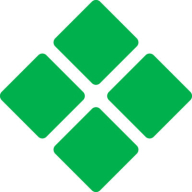


Find out what your peers are saying about Netgate, Fortinet, OPNsense and others in Firewalls.
Clients are now comfortable and not wasting productive hours on IT support.
The automation part is giving us a cost benefit and speed; we can react faster.
It's a very useful tool to mitigate and protect your enterprise.
The biggest return on investment when using Cisco Secure Firewall is that there's no waste in any infrastructure cost and licensing costs for us.
From my point of view, the biggest return on investment when using Cisco Secure Firewall is the single pane of glass, which is a huge plus for us.
The biggest return on investment for me when using Cisco Secure Firewall is reliability and robust network design.
The implementation of Infoblox DNS allows customers to reduce operational costs by managing multiple functionalities in one window, thereby reducing the need for multiple resources.
The ROI with Infoblox is very efficient for opportunities like replacing other vendors and providing advantageous points.
I would rate their support for FortiGate a nine out of ten.
They offer very accurate solutions.
The quick resolution of issues with Fortinet FortiGate is due to the support of the company and the fact that the equipment is easy to work with.
I have to provide many logs, yet problems remain unresolved, often requiring workarounds rather than solutions.
I have been working with them on firewalls, wireless, switching, and routing, and the support is the best.
They have expertise and provide solutions for the most difficult problems.
Infoblox technical support is excellent, with good experiences and strong historical support.
Customer support is efficient, with Infoblox providing 24/7 fast support.
They scale up really well from smaller models like the FortiGate 40 and 50 to bigger sites with the FortiGate 100 for more throughput - up to enterprise datacenters.
The variation comes in terms of the interfaces and throughputs, but from a security perspective, you get the same benefit, irrespective of whether you have an entry-level unit or an enterprise.
We determine sizing based on multiple factors: number of users, available links, traffic types, server count, services in use, and whether services will be published.
Scalability presents a challenge.
Compared to FortiGate and Palo Alto, it lags in configuration and other aspects.
Even with the highest one, the 4600, we still face issues, particularly when transitioning between screens; it becomes very slow.
Scalability is well-supported in Infoblox DNS due to the availability of both hardware and virtual options.
Infoblox is very scalable.
We're experiencing 99.999% availability consistently.
I would rate the stability of Fortinet FortiGate a ten out of ten.
We have not had any problems with the operating systems or maintenance of subscriptions.
We have often encountered split-brain scenarios during failover processes and code upgrades, which have been persistent problems for us.
We work with a cluster with high availability, so if something goes wrong, we have it functioning.
Cisco Secure Firewall offers exceptional performance and stability.
Infoblox DNS is quite stable.
Even when there are performance issues, such as hardware problems, Infoblox provides strong support to resolve the issue promptly, without delays.
Investing in a solution that can accommodate such growth would be more cost-effective than repeatedly purchasing new hardware.
The constant daily revisions necessitate meticulous identification of the relevant documents to prevent the use of outdated information that could jeopardize our environment.
While Fortinet claims to offer a comprehensive network solution, it falls short in addressing computer application issues, particularly server security.
My ongoing complaint for the last six years has been the lack of CLI functionality, which hinders my ability to work on the firewall, alongside concerns regarding deployment time.
Firepower Management Center is quite out of date compared to other vendors.
The integration between Cisco products themselves presents difficulties, such as SD-WAN configuration.
The configuration process can be complex, which may be an area for potential improvement in terms of user-friendliness.
Infoblox needs to adapt its protection to better cover enterprises, particularly in the context of pricing when compared to competitors like Cloudflare.
The overall pricing of Infoblox is high, particularly for the Bangladesh market, and the licensing model is challenging.
FortiGate is priced lower than Palo Alto.
Last year, I renewed the support for three years, which can sometimes be expensive but depends on the security benefits and how it helps us.
It is about 20% cheaper.
It's good to have them, however, it costs us a lot.
It's considered a premium, but people pay that price for Cisco.
There are a lot of in-place contracts for us that provide the benefit of discounts.
Licensing costs can vary depending on the number of users, sometimes costing around a hundred to one hundred fifty dollars per user.
The overall pricing is quite high, which poses a challenge when selling this product to the customer.
The main challenge with pricing is competing with vendors like Cloudflare, which often have an advantage in costs.
The firewall, IPS, and VPN functions are the most valuable features.
In terms of security, we have not experienced any security flaws or loopholes, and it has proven to be quite stable.
FortiGate has helped reduce the risk of cyberattacks that might disrupt our client's production.
What stands out positively about Cisco is their training and support, which has effectively prepared engineers to work with their products.
This is very important to my organization, as we work extensively with security because we are a bank, so we can keep the data safe.
Cisco Secure Firewall allows me to safeguard Layer 7 or Layer 3 and manage the security rules with the business needs of my organization.
They provide centralized management for DNS, DHCP, and IP address management for the DDI, along with complete visibility of the DNS flow in case of incidents, and automated responses.
Infoblox is a DDI solution that offers more than just DNS security, providing unique protection for IT management and DSCP.
Infoblox DNS Protection provides complete DDI solutions, allowing customers to easily manage their IP addresses and integrate them with DNSSEC and DSCP.



Fortinet FortiGate offers comprehensive network security and firewall protection across multiple locations. It effectively manages data traffic and secures environments with features like VPN, intrusion prevention, and UTM controls.
Organizations rely on Fortinet FortiGate for its robust integration with advanced security policies, ensuring significant protection for enterprises, cloud environments, and educational sectors. It facilitates network segmentation, application-level security, and authentication management, securing communication within and between locations such as branches and data centers. Its efficient SD-WAN and UTM features enable streamlined data management and enhanced threat protection capabilities. Users appreciate its centralized management, facilitating seamless operations across diverse environments.
What are the key features of Fortinet FortiGate?
What benefits should users expect from Fortinet FortiGate?
Fortinet FortiGate is crucial in sectors like education, offering robust networks for secure data flow between campuses and facilitating remote learning. In enterprise environments, it allows efficient management of application traffic and security across multiple branches, while in the cloud, it seamlessly integrates with diverse platforms to enhance security infrastructure.
Cisco Secure Firewall stands as a robust and adaptable security solution, catering to organizations of all sizes. It's designed to shield networks from a diverse array of cyber threats, such as ransomware, malware, and phishing attacks. Beyond mere protection, it also offers secure access to corporate resources, beneficial for employees, partners, and customers alike. One of its key functions includes network segmentation, which serves to isolate critical assets and minimize the risk of lateral movement within the network.
The core features of Cisco Secure Firewall are multifaceted:
The benefits of deploying Cisco Secure Firewall are substantial. It significantly reduces the risk of cyberattacks, thereby enhancing the security posture of an organization. This security also translates into increased productivity, as secure access means uninterrupted work. Compliance with industry regulations is another advantage, as secure access and network segmentation align with many regulatory standards. Additionally, it helps in reducing IT costs by automating security tasks and simplifying management processes.
In practical scenarios, Cisco Secure Firewall finds diverse applications. It's instrumental in protecting branch offices from cyberattacks, securing remote access for various stakeholders, safeguarding cloud workloads, and segmenting networks to isolate sensitive areas.
User reviews from PeerSpot reflect an overall positive experience with the Cisco Secure Firewall. Users appreciate its ease of configuration, good management capabilities, robust protection, user-friendly interface, and scalability. However, some areas for improvement include better integration capabilities with other vendors, maturity, control over bandwidth for end-users, and addressing software bugs.
In summary, Cisco Secure Firewall is a comprehensive, versatile, and reliable security solution that effectively meets the security needs of various organizations. It offers a balance of advanced protection, user-friendly management, and scalability, making it a valuable asset in the realm of network security.
Infoblox Advanced DNS Protection (ADP) effectively shields you from the widest range of DNS DDoS attacks, ensuring that you can maintain service uptime for your organization. Minimizing disruptions caused by DDoS and other DNS-based attacks is a key business imperative because DNS provides mission-critical network connectivity. If your DNS is down, your business is down. With ADP you can maintain DNS integrity and stop external and internal DNS DDoS attacks that can take your business offline. ADP eliminates such threats as volumetric attacks, DNS hijacking, cache poisoning and other DNS-specific exploits. A proven solution, it ensures that your customers can always reach your website and other external systems, and it keeps your business up and running 24×7 to maintain customer trust and confidence.
We monitor all Firewalls reviews to prevent fraudulent reviews and keep review quality high. We do not post reviews by company employees or direct competitors. We validate each review for authenticity via cross-reference with LinkedIn, and personal follow-up with the reviewer when necessary.